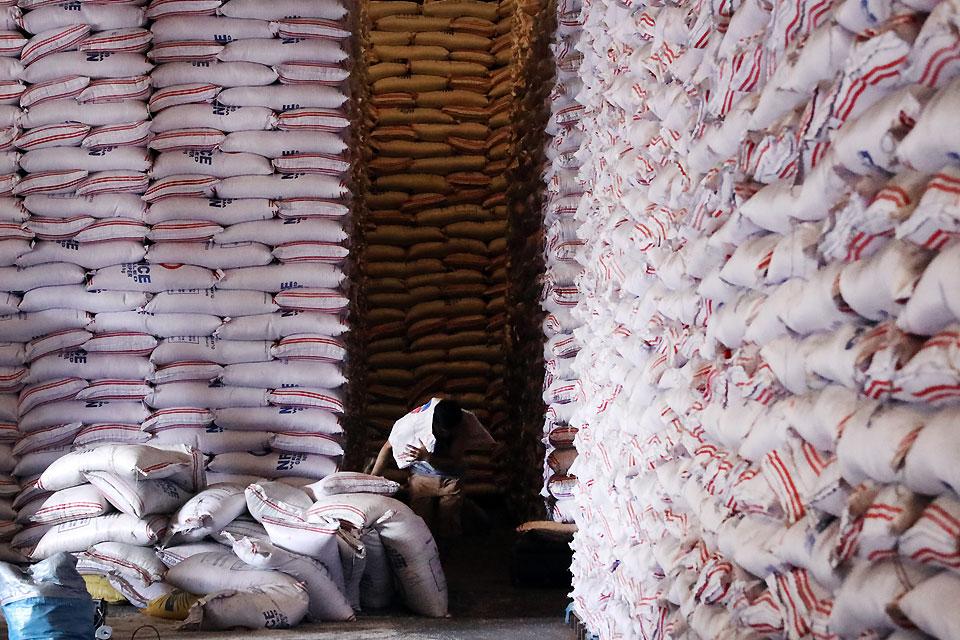
Photo from PTVNews
MANILA – The prices of rice are expected to decrease by P2 to P7 per kilo following the signing of the rice tariffication law by President Rodrigo R. Duterte, the Department of Finance (DOF) said on Tuesday.
“The implementation of the rice tariffication law is vital to the national interest and it should be done as soon as possible,” DOF Assistant Secretary Tony Lambino said in the weekly economic briefing in Malacañang.
Lambino allayed the fears of farmers’ groups that the new law will be disadvantageous to them.
“Ang gusto po nating gawin (What we want to do) is through rice tariffication iyong makakalap po nating taripa ay para sa mga magsasaka lamang at iyan po ay naka-earmark po based on the law (tariffs collected are solely for farmers and it will be earmarked based on the law),” he said.
Lambino expressed confidence that local farmers will be able to compete internationally following the signing of the law.
He cited data from the National Economic Development Authority that showed 57 provinces are rice growing and have the potential to be internationally competitive adding some areas are already competitive.
“Because of better productivity and the use of technology and agricultural sciences ay makakalaban po ang maraming lugar sa Pilipinas na rice growing (many rice-growing places in the Philippines can compete),” he said.
Aside from lowering the prices of rice in the country, Lambino said the law’s passage is also seen to lower inflation significantly by 0.6 percentage point based on estimates from the Bangko Sentral ng Pilipinas.
Lambino said the tariffication of rice in the country has been delayed for more than 20 years already.
“Dalawang extension na po ang binigay sa atin (We have already been given two extensions), based on our international commitments to the WTO. So since 1996 ay humingi na po tayo ng (we have been asking for) special treatment for rice and we have been saying that we will improve productivity before we tariffy,” Lambino said.
“So we are now fulfilling our international commitment para po (so that) we are true to our word and also, so that we do not run the risk that other countries will retaliate in terms of tariffs on other Filipino products. So we really needed to do this,” he added.
Lambino said the National Food Authority (NFA), which previously had the monopoly in importing rice, will restructure and handle emergency buffer stocking under the new rice tariffication law.
Duterte signed the rice tariffication bill into law last Friday.
The signing will result in a switch from the current quota system in importing rice to a tariff system, where rice can be imported more freely.
Source and Original Article from: >>> PTVNews

Comments